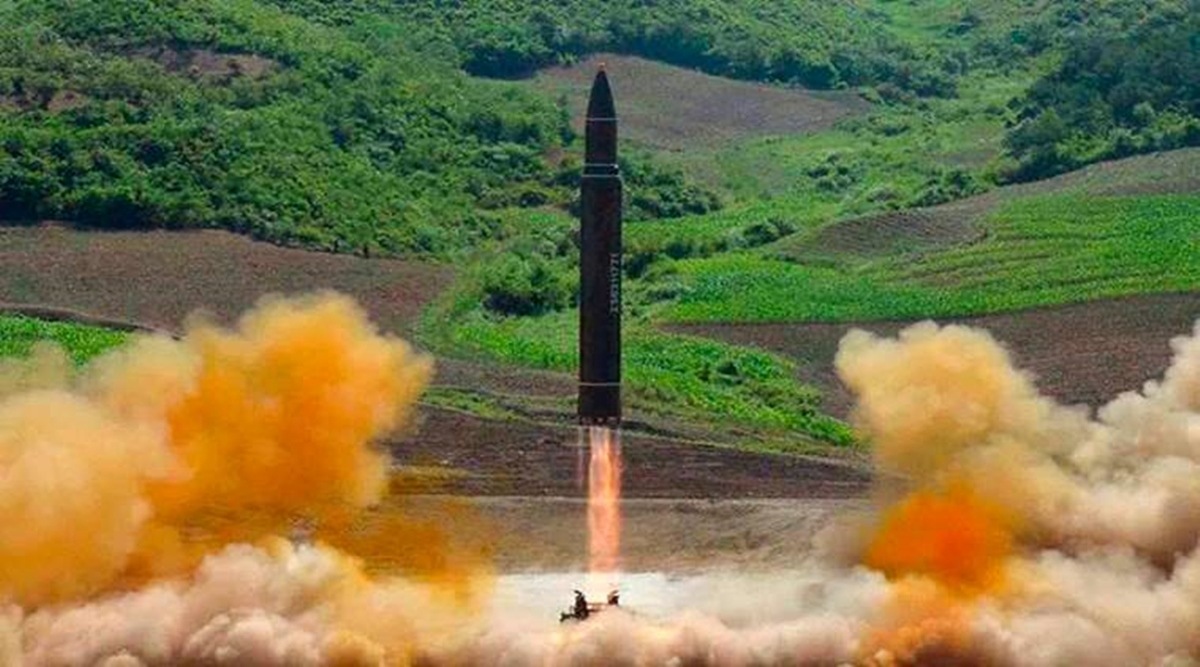 All the nations of the world — nuclear and non-nuclear — must join together to establish a regime of a nuclear-free world. (Representational Image)
All the nations of the world — nuclear and non-nuclear — must join together to establish a regime of a nuclear-free world. (Representational Image)In the past few days there has been much talk (and considerable apprehension) about the use of nuclear weapons as a result of the Ukraine conflict.
What is the law on the subject? Nearly 30 years ago the International Court of Justice was requested by the UN for an Advisory Opinion “as to whether the threat or use of Nuclear Weapons in any circumstance was permitted under International law”. In other words, could the use of nuclear weapons be reconciled with the basic principles of humanitarian law? Representatives of 22 nation-states appeared before the ICJ and made written and oral submissions. In the end, a majority of 12 out of 15 judges said “that humanitarian law has to be read subject to an exception viz. that it permitted a State to use Nuclear Weapons in self defence when its survival was at stake, even where such use would otherwise be a breach of humanitarian law.” Alarming, but true. Only three judges disagreed — Judge Weeramantry of Sri Lanka, Judge Shahbuddin of Guyana and Judge Koroma of Sierra Leone. All three were from the developing world. They said that the concept of the humanitarian laws of war was not a recent invention, nor the product of any one culture. It was deep rooted in many ancient cultures — Buddhist, Hindu, Chinese, Christian, Islamic and traditional African. Each of these cultures had given expression to a variety of means that can be used for the purposes of fighting one’s enemy. They also said that the problem under consideration was universal, and the world court being a universal court, its composition “should reflect the world’s principal cultural traditions”.
Of special relevance in connection with nuclear weapons (the three judges said) was the ancient South Asian tradition regarding the prohibition of the use of “hyper destructive weapons”, as they used to be called in ancient texts. The celebrated Indian epics — the Ramayana and Mahabharatha — were actually referred to in their Opinions: The stories in these epics were regularly re–enacted through the length, and breadth of South and South East Asia as a part of the living cultural tradition of the entire region.
For instance, the Ramayana told the story of a war between Rama, prince of Ayodhya in Bharat, and Ravana, the ruler of Sri Lanka. In the course of this epic struggle — described in minute detail — a weapon of war became available to Rama’s half brother, Lakshmana, which could “destroy the entire race of the enemy, including those who could not bear arms”. Rama warned Lakshmana that the weapon should not be used in the war because such destruction en masse was forbidden by the ancient laws of war, even though Ravana was fighting an unjust war with an unrighteous objective. These laws of war were ancient even in Rama’s time. The judges also quoted from the Mahabharata to emphasise the embargo on the use of “hyper-destructive” weapons.
Equipped with the necessary array of principles and cultural traditions with which to respond, all three judges at the ICJ felt that international law could have contributed significantly towards rolling back the shadow of the nuclear age. But it was not to be. Their dissent could only be addressed to “the brooding spirit of the future”.
All the nations of the world — nuclear and non-nuclear — must join together to establish a regime of a nuclear-free world. Why? The following story from after World War II may illustrate the reason.
J Robert Oppenheimer — the man who invented the atom bomb — was called to testify before the US Senate Armed Services Committee. The committee asked: “Doctor, is there any defence against a nuclear weapon?” He promptly replied: “Yes, peace.”
This is why in the preamble to the constitution of UNESCO there is a sentence, addressed appropriately to all of humanity, which reads: “Wars begin in the minds of men, and it is in the minds of men (and women) that the defences of peace must be constructed.”
The writer is a constitutional jurist and senior advocate to the Supreme Court